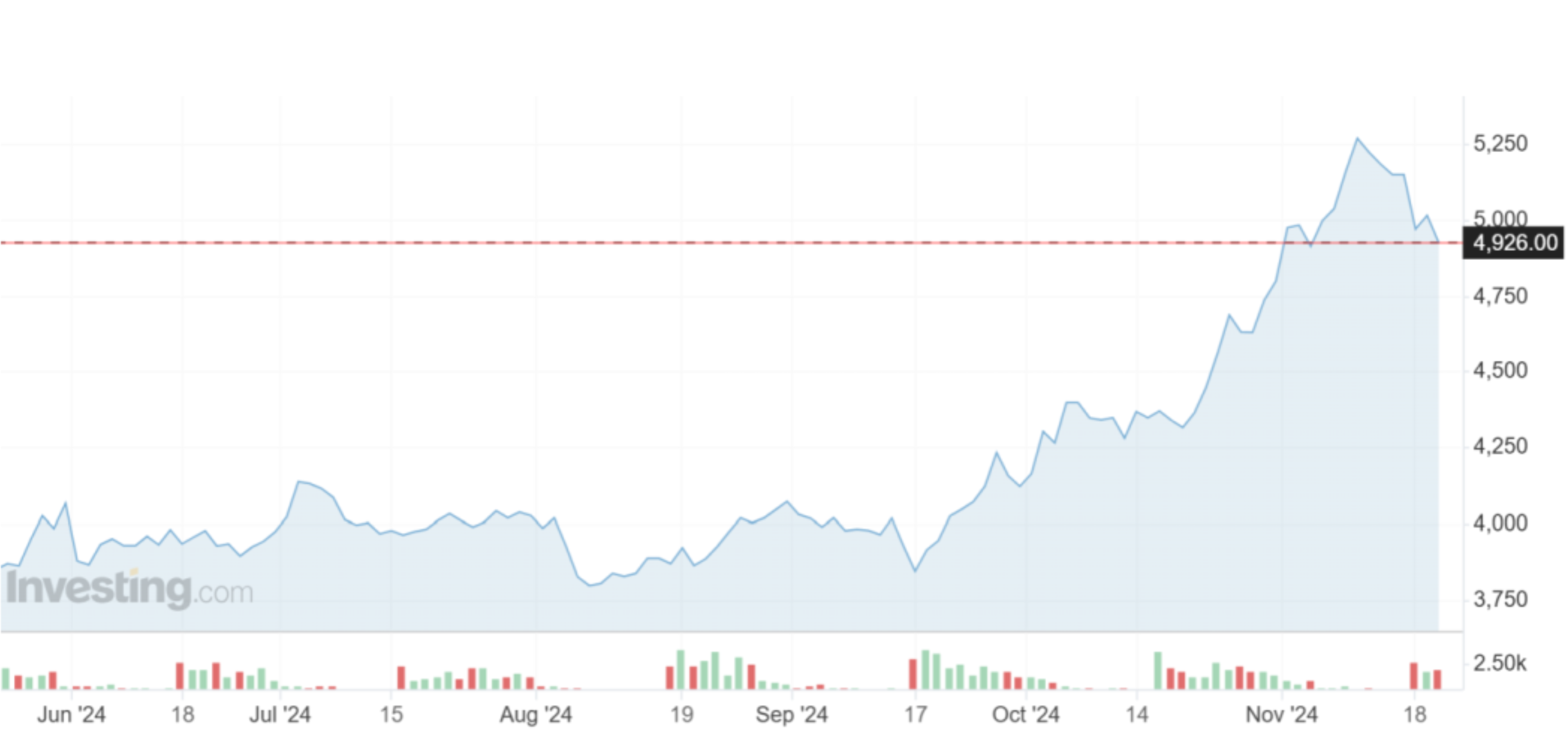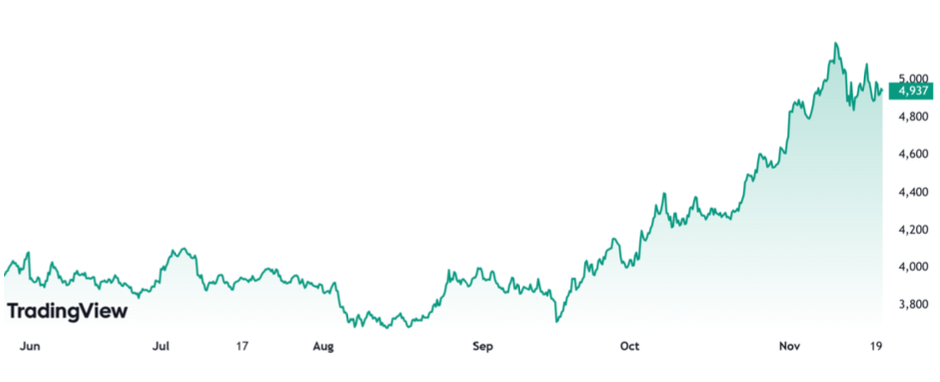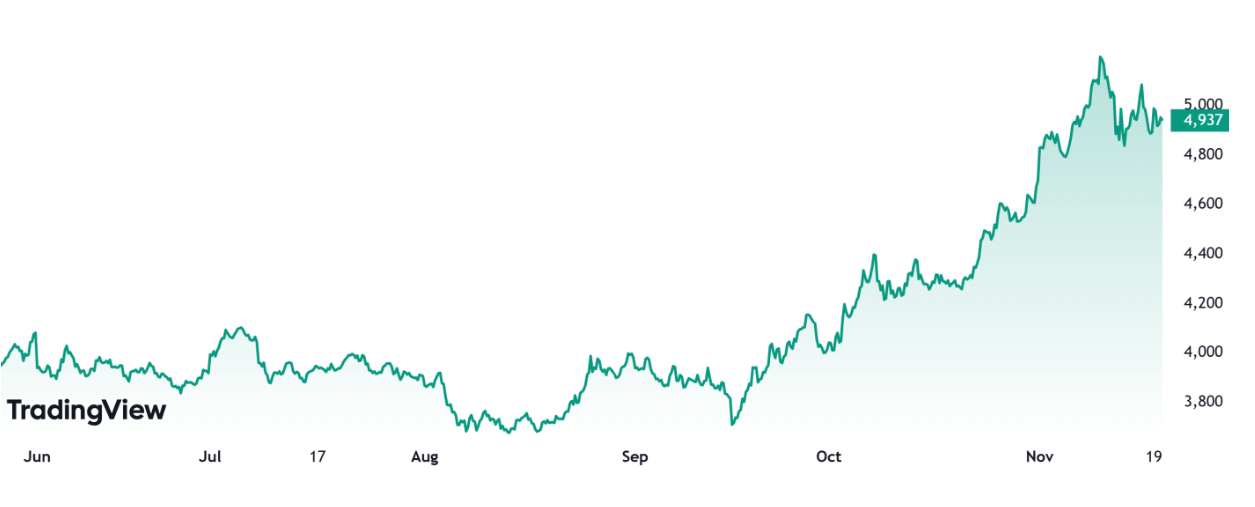Strategies to prevent heart attack - Koon Yew Yin
Koon Yew Yin
Publish date: Tue, 22 Mar 2022, 05:53 PM
I live in the Meru Golf Resort, Jelepang, Ipoh. My house is facing the golf course and at the back of my house is a hill called Bukit Jelepang, Ipoh.
An elderly man who went missing for 10 days while hiking at Bukit Jelapang died due to a heart attack. Ipoh OCPD Asst Comm Yahaya Hassan said a post-mortem conducted at the Raja Permaisuri Bainun Hospital mortuary on Lau Sam, 85, found that the cause of death was due to myocardial fibrosis.
Lau's body was reportedly found on Sunday (March 20) by two mountain guides at about 2.30pm. The body was only brought back down to the foot of the hill at about 3am on Monday (March 21). Sam had gone on a hiking trip with his friends on March 11. He was found missing at about 6.30pm when his friends realised, he did not reach the foot of the hill. His son offered a Rm 10,000 reward for finding his father dead or alive.

This sensational news got more people worried about heart attack.
My heart attack experience:
Let me tell you my experience of my heart attack in 1983 when I was 50 years old. I have inherited a high cholesterol disease called hyperlipidaemia from my mother. She dies at the age of 40 years old and all my siblings who inherited the same blood disease also died around 50 years old. My body produces a lot more cholesterol than ordinary people.
In 1983 only Mayo Clinic in USA and Harley Street Clinic in London could do open heart bypass surgery. I had my heart bypass surgery done in London.
Since I have already written articles about my method of prolonging my life before, I have reproduced this article by Mayo Clinic Staff for you.
You can prevent heart disease by following a heart-healthy lifestyle. Here are strategies to help you protect your heart.
By Mayo Clinic Staff
Heart disease is a leading cause of death, but it's not inevitable. While you can't change some risk factors — such as family history, sex or age — there are plenty of ways you can reduce your risk of heart disease.
Get started with these seven tips for boosting your heart health:
1. Don't smoke or use tobacco
One of the best things you can do for your heart is to stop smoking or using smokeless tobacco. Even if you're not a smoker, be sure to avoid second hand smoke.
Chemicals in tobacco can damage the heart and blood vessels. Cigarette smoke reduces the oxygen in the blood, which increases blood pressure and heart rate because the heart has to work harder to supply enough oxygen to the body and brain.
There's good news though. The risk of heart disease starts to drop in as little as a day after quitting. After a year without cigarettes, the risk of heart disease drops to about half that of a smoker. No matter how long or how much you smoked, you'll start reaping rewards as soon as you quit.
2. Get moving: Aim for at least 30 to 60 minutes of activity daily
Regular, daily physical activity can lower the risk of heart disease. Physical activity helps control your weight. It also reduces the chances of developing other conditions that may put a strain on the heart, such as high blood pressure, high cholesterol and type 2 diabetes.
If you haven't been active for a while, you may need to slowly work your way up to these goals, but in general, you should do aim for at least:
- 150 minutes a week of moderate aerobic exercise, such as walking at a brisk pace
- 75 minutes a week of vigorous aerobic activity, such as running
- Two or more strength training sessions a week
Even shorter bouts of activity offer heart benefits, so if you can't meet those guidelines, don't give up. Just five minutes of moving can help, and activities such as gardening, housekeeping, taking the stairs and walking the dog all count toward your total. You don't have to exercise strenuously to achieve benefits, but you can see bigger benefits by increasing the intensity, duration and frequency of your workouts.
3. Eat a heart-healthy diet
A healthy diet can help protect the heart, improve blood pressure and cholesterol, and reduce the risk of type 2 diabetes. A heart-healthy eating plan includes:
- Vegetables and fruits
- Beans or other legumes
- Lean meats and fish
- Low-fat or fat-free dairy foods
- Whole grains
- Healthy fats, such as olive oil
Two examples of heart-healthy food plans include the Dietary Approaches to Stop Hypertension (DASH) eating plan and the Mediterranean diet.
Limit intake of the following:
- Salt
- Sugar
- Processed carbohydrates
- Alcohol
- Saturated fat (found in red meat and full-fat dairy products) and trans fat (found in fried fast food, chips, baked goods)
4. Maintain a healthy weight
Being overweight — especially around the middle of the body — increases the risk of heart disease. Excess weight can lead to conditions that increase the chances of developing heart disease — including high blood pressure, high cholesterol and type 2 diabetes.
The body mass index (BMI) uses height and weight to determine whether a person is overweight or obese. A BMI of 25 or higher is considered overweight and is generally associated with higher cholesterol, higher blood pressure, and an increased risk of heart disease and stroke.
Waist circumference also can be a useful tool to measure how much belly fat you have. The risk of heart disease is higher if the waist measurement is greater than:
- 40 inches (101.6 centimeters, or cm) for men
- 35 inches (88.9 cm) for women
Even a small weight loss can be beneficial. Reducing weight by just 3% to 5% can help decrease certain fats in the blood (triglycerides), lower blood sugar (glucose) and reduce the risk of type 2 diabetes. Losing even more helps lower blood pressure and blood cholesterol level.
5. Get good quality sleep
People who don't get enough sleep have a higher risk of obesity, high blood pressure, heart attack, diabetes and depression.
Most adults need at least seven hours of sleep each night. Make sleep a priority in your life. Set a sleep schedule and stick to it by going to bed and waking up at the same times each day. Keep your bedroom dark and quiet, so it's easier to sleep.
If you feel like you've been getting enough sleep but you're still tired throughout the day, ask your health care provider if you need to be evaluated for obstructive sleep apnea, a condition that can increase your risk of heart disease. Signs of obstructive sleep apnea include loud snoring, stopping breathing for short times during sleep and waking up gasping for air. Treatments for obstructive sleep apnea may include losing weight if you're overweight or using a continuous positive airway pressure (CPAP) device that keeps your airway open while you sleep.
6. Manage stress
Some people cope with stress in unhealthy ways — such as overeating, drinking or smoking. Finding alternative ways to manage stress — such as physical activity, relaxation exercises or meditation — can help improve your health.
7. Get regular health screenings
High blood pressure and high cholesterol can damage the heart and blood vessels. But without testing for them, you probably won't know whether you have these conditions. Regular screening can tell you what your numbers are and whether you need to take action.
- Blood pressure. Regular blood pressure screenings usually start in childhood. Starting at age 18, blood pressure should be measured at least once every two years to screen for high blood pressure as a risk factor for heart disease and stroke.
If you're between 18 and 39 and have risk factors for high blood pressure, you'll likely be screened once a year. People age 40 and older also are given a blood pressure test yearly.
- Cholesterol levels. Adults generally have their cholesterol measured at least once every four to six years. Cholesterol screening usually starts at age 20, though earlier testing may be recommended if you have other risk factors, such as a family history of early-onset heart disease.
- Type 2 diabetes screening. Diabetes is a risk factor for heart disease. If you have risk factors for diabetes, such as being overweight or having a family history of diabetes, your health care provider may recommend early screening. If not, screening is recommended beginning at age 45, with retesting every three years.
If you have a condition such as high cholesterol, high blood pressure or diabetes, your health care provider may prescribe medications and recommend lifestyle changes. Make sure to take your medications as your health care provider prescribes and follow a healthy-lifestyle plan.
More articles on Koon Yew Yin's Blog
Created by Koon Yew Yin | Dec 26, 2024
Indonesia is the biggest palm oil producer in the world. Indonesia plans to implement biodiesel with a mandatory 40% blend of palm oil-based fuel from Jan. 1 next year, a senior energy ministry offi..
Created by Koon Yew Yin | Dec 13, 2024
Indonesia remains committed to start implementing a 40% mandatory biodiesel mix with palm oil-based fuel, or B40, on Jan 1 next year, its chief economic minister said. Indonesia, the world's largest..

Created by Koon Yew Yin | Dec 12, 2024
Indonesia is the world's largest producer of palm oil, producing an estimated 46 million metric tons in the 2022/23 marketing year. Indonesia also exports over 58% of its production, making it the w..
Created by Koon Yew Yin | Dec 03, 2024
Indonesia is the largest palm oil producer in the world. Indonesia plans to implement biodiesel with a mandatory 40% blend of palm oil-based fuel from Jan. 1 next year, a senior energy ministry offi..
Created by Koon Yew Yin | Nov 25, 2024
My younger brother who was a dentist had bipolar disorder. Unfortunately, he committed suicide about 12 years ago.

Created by Koon Yew Yin | Nov 22, 2024
All plantation companies are reporting better profit for the quarter ending September when CPO price was about RM 3,800 per ton.

Created by Koon Yew Yin | Nov 21, 2024
Indonesia is the biggest palm oil producer in the world. Indonesia plans to implement biodiesel with a mandatory 40% blend of palm oil-based fuel from Jan. 1 next year, a senior energy ministry offici

Created by Koon Yew Yin | Nov 20, 2024
Indonesia plans to implement biodiesel with a mandatory 40% blend of palm oil-based fuel from Jan. 1 next year, a senior energy ministry official said recently, lifting prices of the vegetable oil...

Created by Koon Yew Yin | Oct 30, 2024
Latest poll on 30th Oct 2024
Created by Koon Yew Yin | Oct 30, 2024
Latest poll on 30th Oct 2024
Discussions
Dr. Paul Mason - 'Saturated fat is not dangerous'
https://www.youtube.com/watch?v=NUY_SDhxf4k
2022-03-23 09:49
Do not cheat people will not have heart attacks, nothing to do with healthy lifestyle
2022-03-24 06:27
got money always happy life, so uncle got happy life cos done such expensive surgery also no problem.
2022-03-24 12:07
Strategies to prevent heart attack: Do not teach your heart and immune system how to do it's job with chemicals.
2022-03-25 08:53



















ahbah
Low cholesterol is dangerous.
https://www.youtube.com/watch?v=NHsog5lKg6Y
2022-03-23 09:47